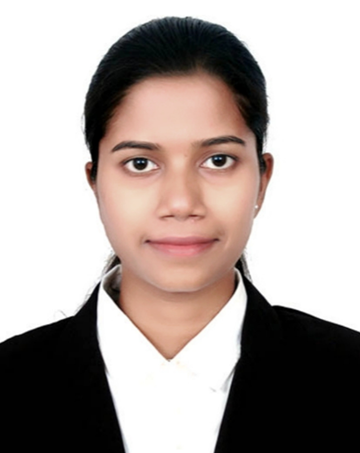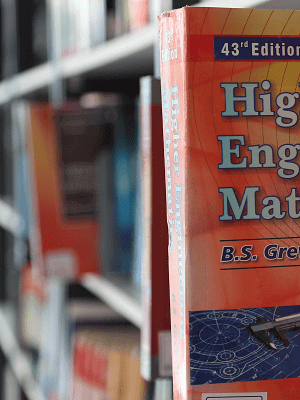Ms. Tejal Khade
Assistant Professor
Ms. Tejal Khade is currently serving as an Assistant Professor in the Department of Computer Science and Engineering (Artificial Intelligence & Machine Learning) at the School of Engineering, Dayananda Sagar University, Bengaluru. She holds a Bachelor of Engineering (B.E.) in Computer Engineering from Dr. D. Y. Patil’s Ramrao Adik Institute of Technology, Mumbai, India and a Master of Technology (M.Tech.) in Computer Science and Engineering from the prestigious National Institute of Technology, Surat (NIT Surat). Her B.E. research work focused on the comparative analysis of image deblurring deep networks, which explored the performance and limitations of various CNN-based architectures for restoring degraded images. During her M.Tech., she worked extensively on Generative Adversarial Networks (GANs), specifically applying GAN-based data augmentation techniques for effective Diabetic Foot Ulcer (DFU) classification, a significant application in the medical imaging domain. Her work demonstrated the practical relevance of synthetic data generation in improving deep learning model generalization for real-world medical use cases.
Ms. Tejal has also completed a 1-year internship at Intel Technology India Pvt. Ltd., where she contributed to the AI Frameworks Team, working on AI model optimization, deployment workflows, and quantization techniques. Ms. Tejal’s areas of expertise include Artificial Intelligence, Machine Learning, Deep Learning, and Generative AI. She has published her research in IEEE Xplore, including at the 7th International Conference on Computing, Communication, Control and Automation (ICCUBEA).
Beyond her academic achievements, she is known for her strong communication and public speaking skills, and actively participates in technical events and workshops. She was a participant in the National-level project competition KJSIEIT INTECH 2K22, held by KJ Somaiya Institute of Technology, Mumbai. In addition to her research work, she writes technical blogs on topics related to artificial intelligence and emerging technologies, aiming to simplify complex concepts for learners.
Google Scholar ID:https://scholar.google.com/citations?hl=en&user=6hdOFdYAAAAJ
About
Schools
Admissions

- DSU Main Campus:
- Devarakaggalahalli, Harohalli,
Kanakapura Road,
Bengaluru South Dt. – 562 112
E-mail: admissions@dsu.edu.in - DSU City Innovation Campus:
- Administrative & Main Admission office,
Kudlu Gate, Hosur Road,
Bengaluru - 560 114
Admissions Helpline: 080 46461800 / 080 49092800 / +91 7760964277 / 8296316737 / 6366885507
E-mail: admissions@dsu.edu.in | dsat@dsu.edu.in - Office of Registrar: 080 4909 2910 / 11
Office of Dean (Engineering): +91 80 4909 2986 / 32 / 33
Dean - MBA: 080 4909 2931
Enquiry EMBA: 080 4909 2930
Research Cell: 080 4909 2912 - DSU City Admissions Office:
- Gate 2, 6th Floor, University Building,
Dental Block, Kumaraswamy Layout,
Bengaluru - 560111
Admissions Helpline: 080 46461800 / 080 49092800 - E-mail: enquiry@dsu.edu.in / admissions@dsu.edu.in





